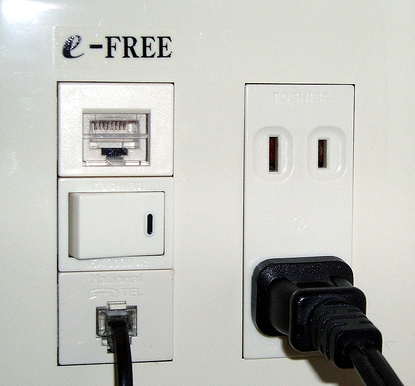
Digital Rights have long been recognized as crucial to development and growth. Having a right to an internet connection is a vital component of making the freedom of expression real and meaningful. Both rights are secured in Article 19 of the Universal Declaration of Human Rights, but the full implementation of these rights remains rare.
Access to digital resources online is also crucial to global knowledge transfers, from the north to the south. This was acknowledged in the Millennium Development Goals declaration in 2000 already, with a specific target in its 8th goal: “In cooperation with the private sector, make available the benefits of new technologies, especially information and communications.”
We are starting to see more and more initiatives by various countries to broaden this access, particularly broadband penetration. Finland recently declared broadband access a right. In practice this means that internet providers will have to extend the internet network in Finland to make sure that every citizen has access at a reasonable cost.


